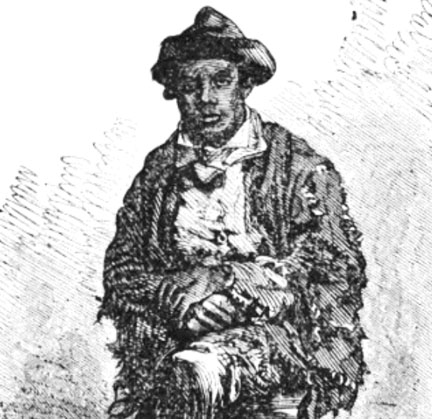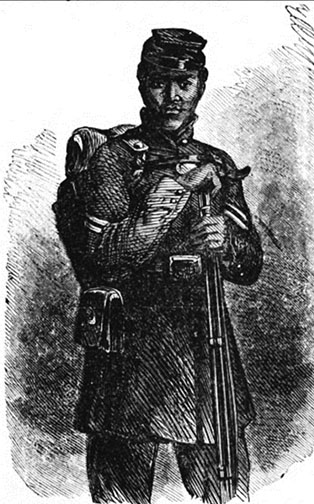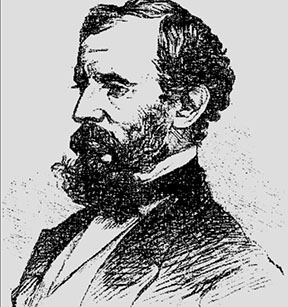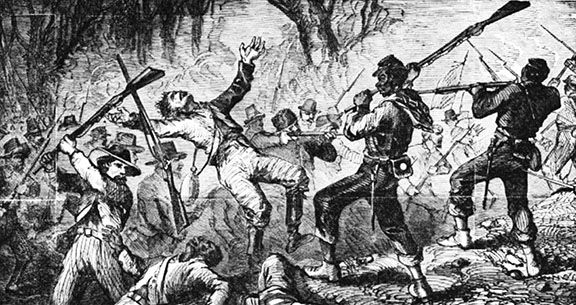Vincent Colyer was a busy man.
His official title – Superintendent of the Poor – barely described the myriad services he was overseeing in dealing with thousands of recently freed slaves and impoverished white people uprooted by the war. Charged by Union General Ambrose Burnside in early 1862 with providing food, clothing, shelter and spiritual sustenance to the astonishing number of men, women and children refugeed at New Bern, Colyer was also using freedmen labor to build the colossal Fort Totten to protect the city’s western edge.
Women were organized to deal with livestock, prepare and cook food, wash and repair clothes, and care for children. Some served as nurses; some as teachers.
Colyer’s male freedman crews were unloading vessels on the waterfront and rebuilding the railroad bridge across the Trent River that had been lost to fire on the day of the battle for New Bern. His men were carpenters, blacksmith and coopers. They worked effectively as wheelwrights and ship joiners, and in building everything from houses to wooded cots for the hospital.
In addition to all the rest, Colyer was running a spy network.
“One morning,” he wrote in his 1864 book, Report of the Services Rendered by the Freed People, “the provost Guard in front of my door told me that two negro spies sent by the rebels into our lines, had been caught by our pickets.”
“I had sent two men to [Confederate-held] Kinston, with instructions that they should report only to me; on their return they were examined by the pickets and officers of the outposts, who, ignorant of our doings in this way, and completely mystified by the negroes, sent the two men under strong guard to General Foster.”
“The General himself, not having been told by General Burnside of the authority which had been given to me, of sending out men on these expeditions, was going by my door at the time the guard were passing with these men. For convenience he brought them into my office; when, to my astonishment I found that the noted negro prisoners, of whom I had heard early in the morning were my two men. So faithful were they to my order, that though subjected to suspicion and indignity all the morning, from their own friends, they had not betrayed their trust.”
“The name of one of these two faithful men who thus opened the way for the carrying on of this important service was Furney Bryant. At that time now two years ago, he did not know a letter of the alphabet, and he came within our lines dressed in the rags of the plantation.”
“He attended my schools,” Colyer wrote, “and after I left Newbern, on the formation of the 1st North Carolina Colored Reg’t, he enlisted, and with his regiment was ordered for duty with General Gilmore off Charleston; where his gallantry and intelligence caused him to receive the appointment of 1st Sergeant, and a leave of absence of thirty days. On his way home to Newbern he came to New York City and called on me. The contrast in his personal appearance, in his new suit of Army blue, was … remarkable.”
Colyer concluded: “Let no one say that freedom is not better than slavery, with such examples before them. In company with three other soldiers of his regiment, he arrived in Newbern in time to participate in the defense of that place against the recent desperate attack of the rebels in February, 1864. The engraving represents him, in company with Corporal Owen Jones heroically defending his native town, and the government which had set him free, against the secessionists.”
by Edward Ellis, Special Correspondent
Eddie Ellis is the author of New Bern History 101 and other works about Craven County’s rich heritage. He can be reached at flexspace2@aol.com.
More at edwardellis.com




